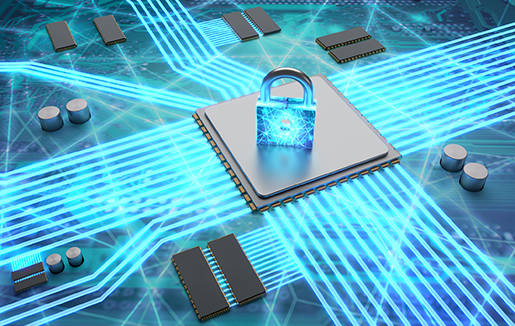
The market opportunity in blockchain technology for managed service providers (MSPs) is significant, as more businesses look to implement blockchain and change the way they store and access data and complete transactions.
MSPs are not alone in embracing this technology. The blockchain market size is projected to grow from $4.9 billion in 2021 to $67.4 billion by 2026, a compound annual growth rate (CAGR) of 68.4 percent. Other market drivers include increased venture capital investments, growing blockchain adoption in finance, new use case in mitigating cyberattack risks, high adoption of blockchain solutions for payments, rapid deployment of blockchain driven smart contracts, digital identity management, and continued interest to use blockchain in government.
Members of CompTIA’s Blockchain Advisory Council said MSPs should begin to educate themselves on how they can integrate blockchain into their current and future solutions offerings to customers. Here are five reasons council members cited for why it’s time to start talking blockchain with customers.
1. Protecting Digital Assets Is Critical
While digital assets have been part of IT conversations for many years (consider all the discussions IT professionals have had over the years around protecting digital assets on laptops, tablets, and PCs), business leaders today are paying more attention than ever to digital asset risks. As the average consumer educates themselves on blockchain, cryptocurrency, and non-fungible tokens (NFTs), there’s plenty to learn and discuss with customers about asset protection.
“Increased protection of an individual’s privacy with regulations such as GDPR and HIPAA make the collecting and distributing of data paramount,” said Barry Mosakowski, program director of IBM CloudPak Bring-Up Lab at IBM. “Violations are not just a mistake but a crime. Currently, the concept of an NFT has been associated with digital art. In reality, an NFT is a unique and non-interchangeable unit of data stored on a blockchain. By using blockchain technology, an individual can have total control of all their personal NFTs to include things such as birth certificates, driver’s licenses, mortgages, etc.”
Despite challenges with adoption facing organizations, blockchain technology may be able to provide the protection digital assets require. “In some ways, you can think of this not a blockchain but a ‘life-chain,” he said. “It provides all the total immutable protection while allowing access to the data all within the individuals control.”
2. Limitless Applications/Vertical Opportunities
According to council members, blockchain eliminates a company’s need to create their own implementations of the technology and operate on their own rails. Multiple companies can operate on the same network which creates a larger network effect.
A blockchain-based network and automate the execution of a contract between multiple parties by writing to the blockchain the relevant results of the business process and revealing or obscuring the results according to the contractual terms. The immutable nature of the blockchain ledger eliminates the need for layers of approvals that slow down the business process. A complex process that has eight different entities operating in concert would spend thousands of hours manually checking documents to manage payments and reporting. A blockchain network seamlessly ties these companies together to make a complex process occur without continuous manual review.
“Pulling specific data into an encrypted distributed ledger creates a verifiable third-party record that any transaction is accurate and certain,” said Maxine Aitkenhead, Director of Business Development at Data Gumbo, and Vice Chair of the Blockchain Advisory Council. “The end result is an innovative and modern process that creates touchless transactions and crushes waste in the process.”
3. Increased Compliance Regulations/Laws
Many countries and regulatory bodies still haven’t caught up to how blockchain technology has evolved and what it means for their economies and to their citizens. In other words, there are many opportunities for tech companies to help customers maneuver through whatever’s coming down the regulatory road.
“The decentralization of business processes and use of different kinds of tokens (utility, payment, security etc.) comes with legal and regulatory implications,” said Neeraj Satija, CEO/CTO of Concordus Applications, and past co-chair of the Blockchain Advisory Council. “In some countries, these regulations are well defined, while they are hazy or uncertain in several others.”
For instance, China curtailed cryptocurrency mining in October 2021 and continues to discourage investment while at the same time, in the United States, cryptocurrency investment is accelerating. Where these countries stand on the technology in the coming years remains to be seen.
“Developers need to ensure they understand the different legislations required to satisfy compliance for each region that their application would be operational in and to work with the relevant entities for those regions to achieve compliance (e.g., decentralized apps), Satija said. “For example, in the United States that means the need to be compliant with the Securities and Exchange Commission regulations.”
4. Integrates/Complements Current Offerings/Solutions
“Tokenization (i.e., NFTs) is one of the latest major use cases of blockchain's commercial potential,” said Eric Powell, founder of Rylet Industries. “Suppose your business produces nonperishable, physical objects such as collectibles, works of art, or even real estate. In that case, there's a good chance that you can take advantage of a growing market demand to digitize these objects for commercial sale. Tokenization allows customers to acquire a perceived object of value (i.e., asset) without actually owning the physical object.”
For instance, tokenizing virtual assets using blockchain technology has already disrupted the billion-dollar gaming industry, “where players exchange real currency for having unique player skins and virtual objects within a specific fantasy world,” he said. “The benefit to companies that tokenize their products is that they can create another line of business complementary to their current commercial activities.”
5. First-Mover Advantage, Act Now
MSPs have a unique opportunity to help retailers—and other companies—transition to accept crypto currency as payments, implementing blockchain technology into their current transactional systems to do so.
“Blockchain is no longer a speculative technology,” Powell said. “By extension, one can say the same about its financial use cases related to cryptocurrency.” For instance, one report estimates that a third of U.S. small businesses now accept crypto payments, a trend that continues to accelerate.
“With the increasing number of major U.S. retailers accepting crypto as a form of payment, blockchain can no longer be dismissed as a fad,” Powell said. “As this phenomenon continues to accelerate, businesses of all sizes and industries should start to explore how they can integrate this new method of exchange into their current payment systems.”
Looking to connect with more blockchain solution providers?
Join CompTIA's Blockchain Technology Interest Group!

 Add CompTIA to your favorite RSS reader
Add CompTIA to your favorite RSS reader

